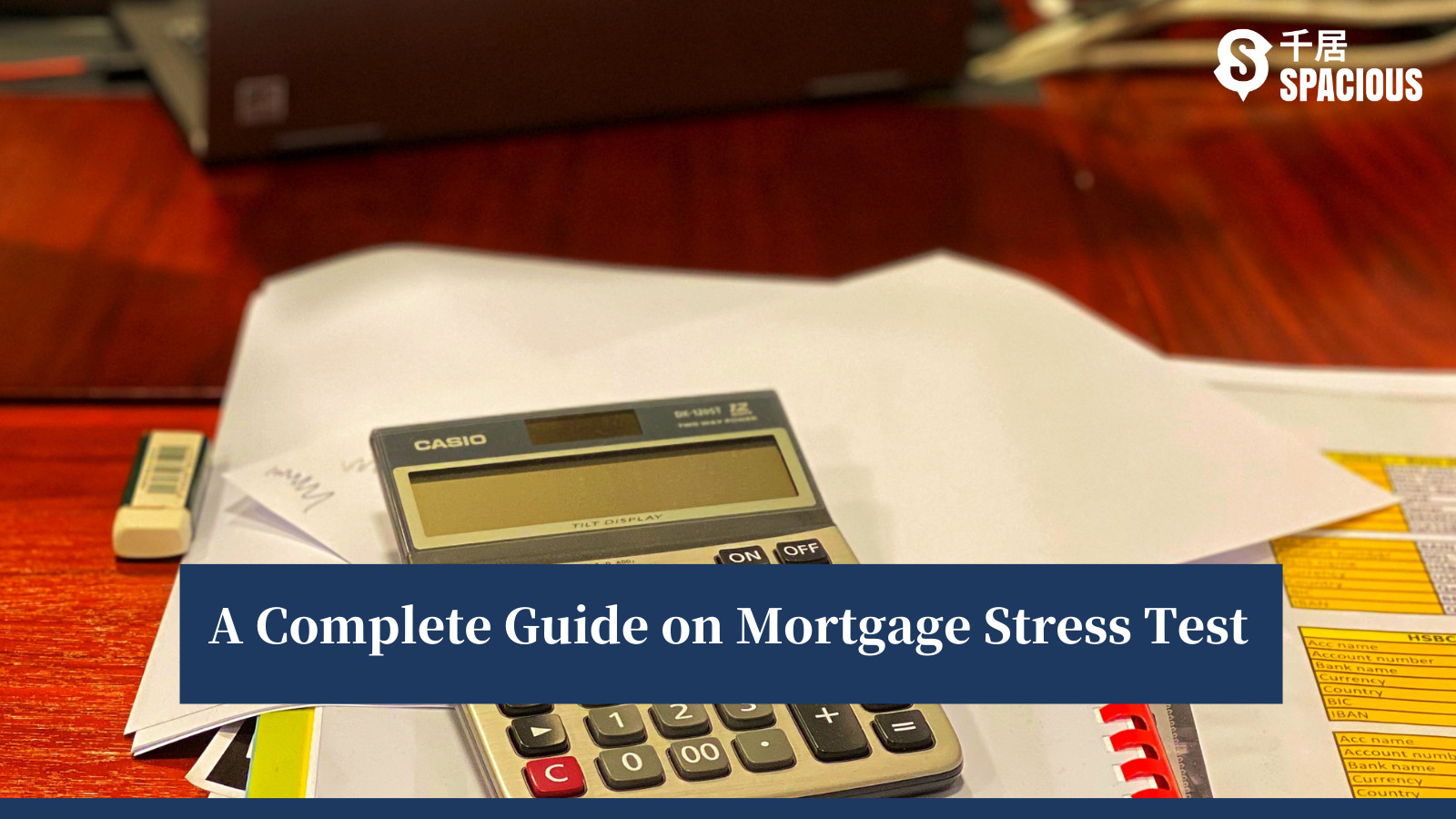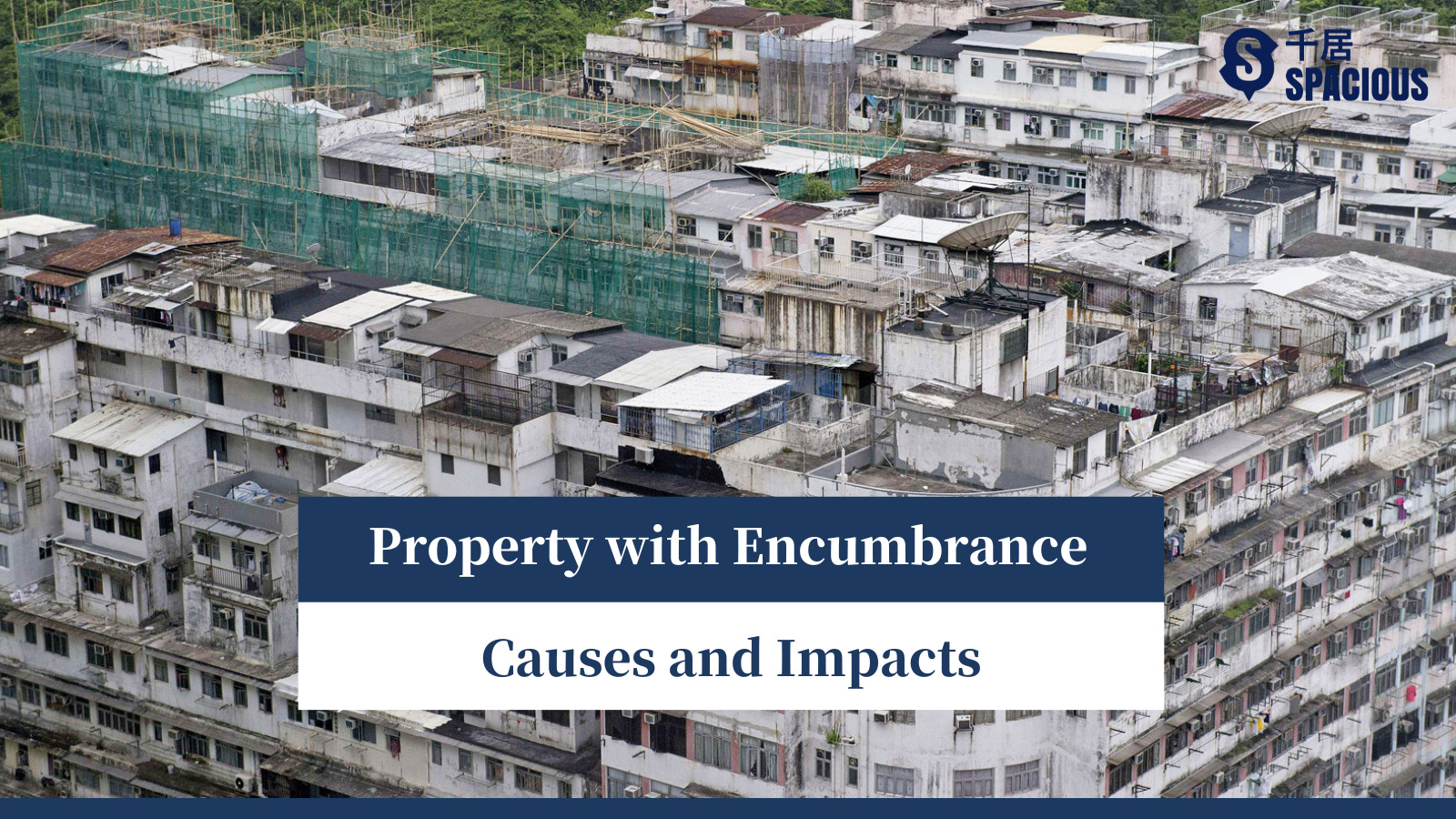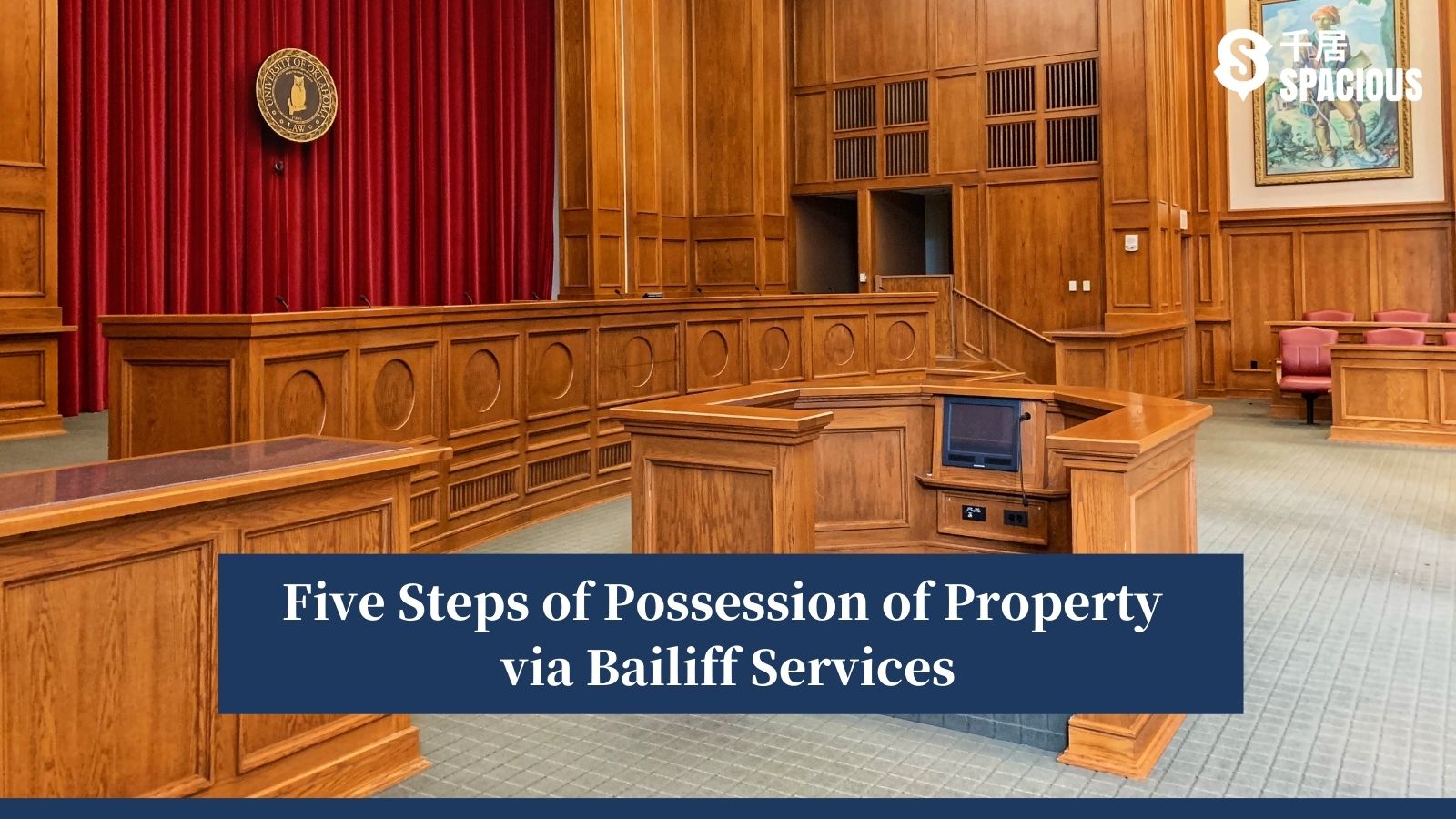
Taking out a mortgage from a bank requires a stress test. For new buyers who have no concept of what a stress test is, look no further than this comprehensive guide.
In this article, Spacious covers a wide range of topics including when to do a stress test ; how to calculate stress test ; mortgage difference between buying a property for self-use or rental ; whether it is feasible to avoid a stress test and much more. Read on and be a savvy mortgage borrower.
Jump to: When Stress Testing is Needed|Calculating Debt-to-Income Ratio|Upper Limits for Debt-to-Income Ratio|Stress Test Calculation Example|First-time Homebuyers’ Stress Test|FAQ
Latest Update:
– The Hong Kong Monetary Authority (HKMA) has suspended the interest rate stress testing requirement for property mortgage lending that assumes a 200-basis-point rise in the mortgage rate. (2024-2-28)
– Rental properties that are not used by owners, the maximum loan-to-value ratio will be increased to 60 per cent, from previous 50 per cent. (2024-2-28)
When Stress Testing is Needed
The amount of mortgage loan to buy a property usually involves a large sum of money. The bank will conduct an approval process to confirm that the applicant has the ability to make payments before approving the loan.
To evaluate the applicant’s repayment ability, the bank will perform two types of calculations:
- Based on the current mortgage interest rate, the bank will calculate whether the Debt-to-Income ratio (DTI) is within the upper limit;
- Assuming the current mortgage interest rate rises by 2%* (stress test scrapped since 28 February, 2024), the bank will calculate whether the DTI is within the upper limit.
In Hong Kong, unless borrowing a developer’s mortgage, there are probably only two types of homebuyers who can skip the bank’s stress test:
| Stress Test Exemption | Conditions |
|---|---|
| First-time homebuyers who apply for a mortgage through the Mortgage Insurance Programme | High LTV (loan-to-value) applications for completed properties (stage payment required for pre-sale properties); the purchased property can only be used for self-occupancy. |
| Eligible Green Form or White Form Buyers | Purchase of new Home Ownership Scheme (HOS) flats and Green Form Subsidised Home Ownership Scheme (GSH) flats. |
Calculating Debt-to-Income Ratio
Before and after the stress test, the bank will calculate the applicant’s DTI as a threshold to determine whether the mortgage application is eligible.
The formula for “Debt-to-Income Ratio” (DTI) is the percentage of monthly debt payments to monthly income.
Trying to do a stress test on your own, the hardest thing to calculate is actually the monthly payment. You can use a mortgage calculator like Spacious to enter numbers such as property price, down payment, and mortgage rate to get the monthly payment amount.
When conducting a stress test, the mortgage payment referred to the total amount of the loan that the applicant wishes to borrow. The only exception is for first-time homebuyers who purchase a property through a mortgage insurance plan.
The insurance covers the portion of the loan that is beyond 60% of the property’s value. For the bank, approving a 60% mortgage and an 80% mortgage should pose the same level of risk.
Therefore, some banks might only calculate the monthly payment for a 60% mortgage. As for which type of calculation a bank actually uses, it is recommended that the applicant confirm with each individual bank.
Find or sell properties on Spacious
Upper Limits for Debt-to-Income Ratio
For both pre-stress test and post-stress test situations, banks have put a cap on DTI. If the application exceeds the limits, the bank will reduce the loan-to-value ratio or even reject the application.
DTI’s upper limits are not the same for everyone. Banks will tighten them due to several different factors. Here are some examples:
- The property is not for self-use but for rental (DTI limit for rental properties reduced by 10%)
- There are outstanding mortgages (such as building mortgages, parking space mortgages, etc., which are also included in the calculation for guarantors, and DTI limits are reduced by 5-10%)
- Income source is not in Hong Kong (DTI limit reduced by 5-10%)
For Owner-occupied Properties
If you are buying a property for self-use, the maximum loan-to-value ratio (LTV) and the corresponding DTI before and after the stress test may vary based on the property price as shown in the table below:
| Self-use Property and… | Property Price (HKD) | LTV (without mortgage insurance application) |
|---|---|---|
| Without Mortgage | < $30M | 70% |
| Without Mortgage | $30M – $35M (Loan limit is $21M) | 60 – 70% |
| Without Mortgage | > $35M | 60% |
| With Mortgage | < $30M | 60% |
| With Mortgage | $30M – $35M | 50 – 60% |
| With Mortgage | > $35M | 50% |
For Rental Properties
If you plan to purchase a property for rental purposes, the required DTI set by the bank will be stricter as shown in the table below:
| Rental Property and… | Property Price (HKD) | LTV |
|---|---|---|
| Without Mortgage | any | Max. 60% |
| With Mortgage | any | Max. 60% |
Find or sell properties on Spacious
Stress Test Calculation Example
If a buyer purchases mortgage insurance and borrows 80% of the property value while not having outstanding mortgages, the stress test can be calculated as follows:
| Property Price (HKD) | $8M |
| LTV | 80% |
| Loan Amount (HKD) | $6.4M |
| Current Bank Interest Rate | 4.125% |
| Stress Test Interest Rate | 4.125% + 2% = 6.125% |
| Repayment Term | 30 Years |
| Monthly Payment | $31,356 |
| Monthly Payment After Stress Test | $35,838 |
| DTI Upper Limit After Stress Test | 60% |
| Minimum Monthly Income Required | $65,518 |
Result:
The borrower’s monthly income must be at least $65,518 to borrow 80% of the property value and purchase a unit worth $8 million. But with the scrapping of the stress test, the minimum monthly income required now becomes $62,712 .
First-time Homebuyers’ Stress Test
Under the new mortgage insurance plan, first-time homebuyers do not need to pass the stress test.
As long as the buyer does not hold any other residential properties at the time of the transaction, it is considered as first-time homebuyers.
In other words, even if the buyer has owned a property before, as long as they do not possess the old property before buying a new one with a high loan-to-value ratio and purchasing mortgage insurance, they can avoid the stress testing requirement.
However, the HKMA has clearly stated that banks still need to calculate the applicant’s DTI and keep it within 50%. Furthermore, they do not encourage banks to completely skip the stress test procedure.
The exemption lies in that the applicant is not required to “pass” the DTI limit after being subjected to the stress test.
For example, if the applicant’s debt-to-income ratio is 50%, the bank will conduct a “2% stress test” on the application. Even if it is found that the DTI exceeds the limit after being subjected to stress testing (60%), the application will less likely be rejected.
Extra 10% Premium if Stress Test Fails
Some may figure, what is the point of doing a stress test if failing in it does not affect the approval result? In fact, it is used to determine whether the applicant needs to pay an additional premium.
For first-time buyers who purchase property through mortgage insurance, if their DTI exceeds the upper limit after the stress test, the mortgage insurance premium will be increased by 10% of the original premium.
In addition, the bank has the right not to approve the full amount of mortgage loan. For example, if the applicant applies to borrow 90%, they may only be approved for 85%, so it is important to clarify with individual banks if there are any questions.
Relaxing mortgage approval requirement will benefit home ownership. Let’s start your property search on Spacious across the city.
Find or sell properties on Spacious
FAQ
If I fail the stress test for a 60% LTV, is there any other way?
If the buyer has the first-time buyer status, they can use the mortgage insurance plan to borrow a high percentage of the mortgage without passing the stress test. However, they still need to meet the DTI requirements or they will have to pay additional insurance premiums.
Update: stress testing on mortgage financing is scrapped since 28 February, 2024.
For those without fixed incomes, how is the stress test calculated?
Banks usually look at the average of half-year commission income and consider the volatility risk of income. Generally, they would discount a 20-40% of that average as the monthly repayment amount and do the stress test.









